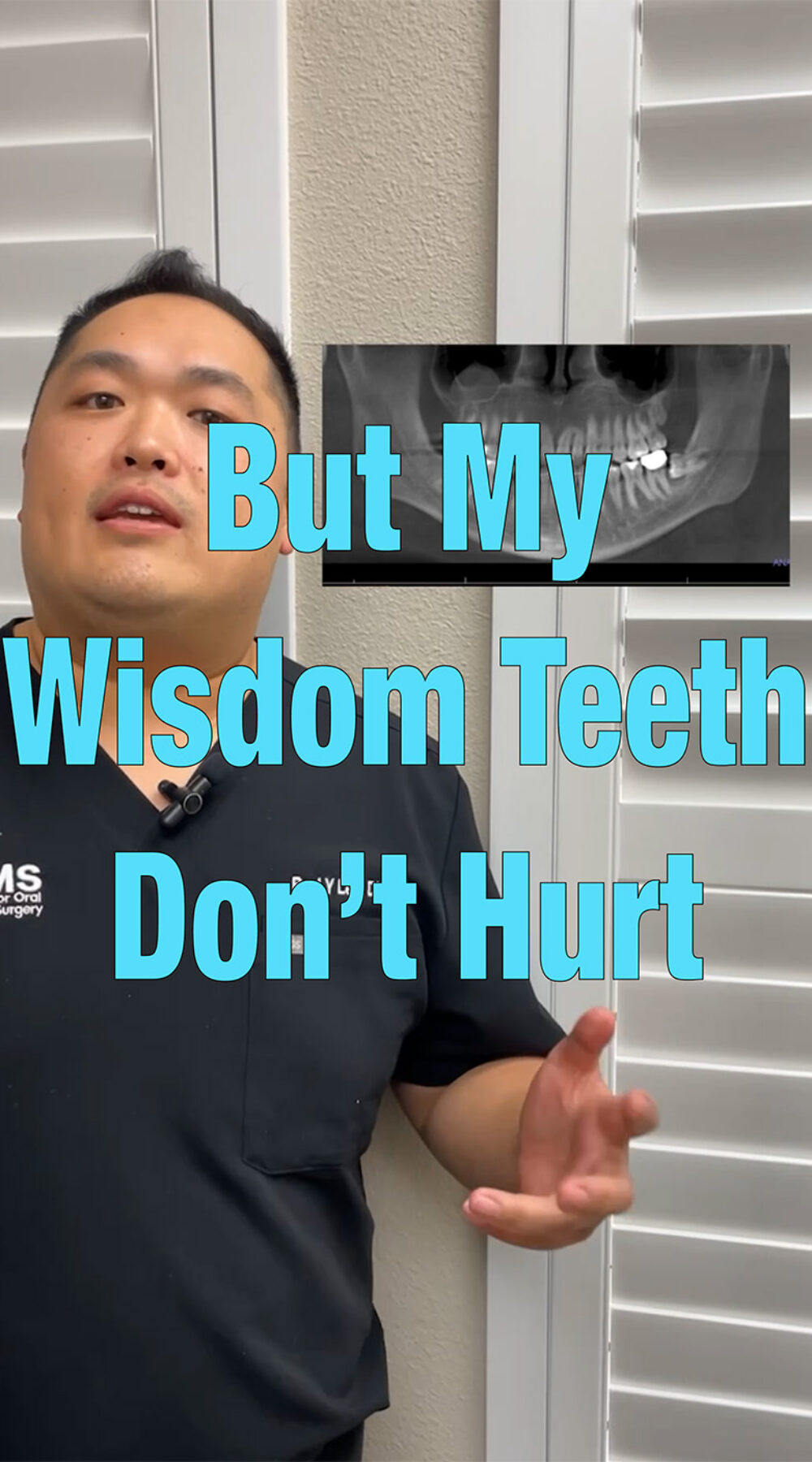Dallas Center for Oral & Maxillofacial Surgery
Wisdom Teeth Removal
Our surgeons have provided top-quality wisdom teeth removals in Plano and the surrounding Dallas area for years. Call today and discover why DCOMS is the fastest growing Plano wisdom teeth removal practice in the metroplex.
Wisdom teeth are the third and final set of molars that develop in our mouths, and they are typically removed due to a lack of function and potential health risks. The procedure is usually done under sedation.
Most people will have these molars removed in their early and late teenage years. Oftentimes, patients will feel no discomfort from their presence, but the risk of bone loss and other risk factors still exist.
For nearly three decades, the Dallas Center for Oral and Maxillofacial Surgery has been the beacon of expertise in wisdom teeth removal in the Dallas and Plano areas. Specializing in oral surgery, their team is dedicated to providing top-notch care to patients facing the challenges of impacted or misaligned wisdom teeth.
With a focus on preventing complications like bone loss, their experienced oral surgeons in Dallas and Plano ensure that each patient receives tailored treatment plans and personalized attention. The center’s commitment to excellence in dental care has made them a trusted choice in the realm of Plano wisdom teeth removal, offering peace of mind to countless individuals seeking oral health solutions.
Utilizing state-of-the-art techniques and equipment, the Dallas Center for Oral and Maxillofacial Surgery ensures a smooth and comfortable experience for patients undergoing wisdom teeth removal. Their long-standing presence in the community speaks volumes about their dedication to serving the oral health needs of Dallas and Plano residents.
When it comes to wisdom teeth removal, entrusting your care to the experts at the Dallas Center for Oral and Maxillofacial Surgery ensures optimal outcomes and a brighter, healthier smile for years to come.
-
Impaction is the most common reason why we remove wisdom teeth. There are four ways this can happen. Mesioangular impaction is when your wisdom tooth is leaning towards the front of the mouth. Distoangular impaction is when its leaning towards the back of the mouth. A horizontal impaction is when it grows into the roots of the molar next to it at a 90-degree angle. Vertical impaction is when it does not break through the gumline.
Overcrowding in the mouth is another reason we remove wisdom teeth. Your mouth can hold twenty-eight teeth comfortably. With wisdom teeth, you’re looking at thirty-two teeth. This can result in crowding that causes infections, ear pain, and swelling. Wisdom teeth are tough to reach even with your toothbrush or dental floss. This makes them prone to cavities or gum disease. We remove them to avoid repeated occurrences of these issues. Read wisdom teeth removal FAQs. -
Getting your wisdom teeth extracted isn’t mandatory at all. However, certain wisdom teeth need to be extracted between the ages of 18 to 20. Certain dentists may even suggest having your wisdom teeth removed earlier according to the structure of your mouth. Learn more about when wisdom teeth should be removed.
-
Wisdom teeth are removed via oral surgery. It takes about 45 minutes. Before the procedure, you should tell us about any health problems you have. We also need a list of any drugs you take regularly. This helps avoid any complications. We will first take x-rays known as radiographs. These help us pinpoint the location of the tooth and act as a guide during the procedure. Next, we’ll numb the tooth and surrounding tissue. Learn more about recovery from surgery after wisdom tooth removal.
There are three different types of anesthesia we may use. Local anesthesia involves a shot of Novocaine in your gums. Laughing gas (Nitrous oxide) may also be used to relax you. You may feel sleepy, but you should feel alert.
General anesthesia involves drugs administered through a vein or via gas you inhale through a mask. It puts you to sleep, and you’re asleep for about an hour after the procedure. IV sedation is another option. Our dental surgeon numbs your mouth and also gives you drugs through a vein in your arm. It will make you drowsy. You may be asleep for the duration of the procedure.
Our surgeon will then work on removing your tooth. They may have to cut your gums or bone to release the tooth. It may be taken out in one piece or in sections for easier removal. All you should feel is pressure. You should not be in any pain.
Once it’s out, we’ll use dissolvable stitches to close any incisions we make. These disappear after a few days. Gauze is also placed over the holes. It promotes clotting and helps your wounds heal. Don’t hesitate to call Dallas Center for Oral & Maxillofacial Surgery at 972-733-0414 today, if your wisdom teeth are causing you any pain or discomfort.

Patient Feedback
Read More Feedback >



